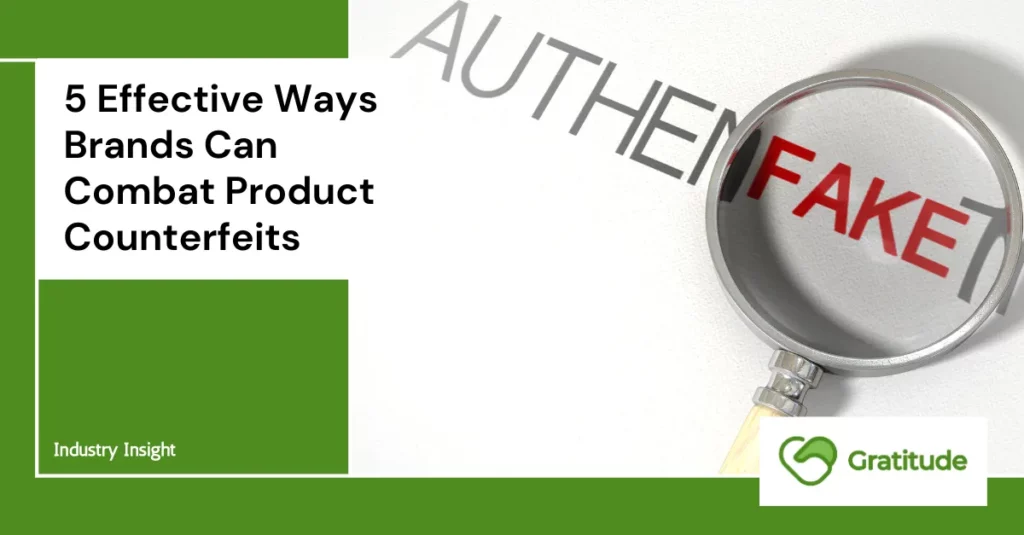
Counterfeit products have become a major challenge for brands across the world as it not only results in revenue loss but also damages the brand’s reputation. According to a report by Global Brand Counterfeiting, the global economic cost of counterfeiting and piracy could reach $4.2 trillion by 2022. It’s important for brands to take steps to protect themselves from counterfeit products. Here are 5 ways brands can protect themselves from counterfeit:
1. Invest in anti-counterfeit technologies: Brands can invest in anti-counterfeit technologies such as RFID tags, hologram stickers, and QR codes to make it difficult for counterfeiters to replicate their products. These technologies can help brands and consumers identify genuine products from fake ones. For example, Nike uses RFID tags in their shoes to track the movement of the product from the factory to the store.
2. Educate consumers: Brands can educate consumers on how to identify genuine products from fake ones. This can be done through social media campaigns, in-store displays, and product packaging. For example, Louis Vuitton has a section on their website that educates consumers on how to identify genuine Louis Vuitton products.
3. Conduct regular market surveys: Brands can conduct regular market surveys to identify counterfeit products in the market. This can help brands take legal action against counterfeiters and also help them identify areas where they need to strengthen their anti-counterfeit measures.
4. Strengthen supply chain management: Brands can strengthen their supply chain management by working closely with their suppliers and distributors to ensure that their products are not being counterfeited. This can be done by conducting regular audits, implementing strict quality control measures, and using tamper-evident packaging.
5. Work with law enforcement agencies: Brands can work with law enforcement agencies to crack down on counterfeiters. This can be done by sharing information about counterfeit products, conducting joint operations to seize counterfeit products, and providing training to law enforcement agencies on how to identify counterfeit products.
In conclusion, counterfeiting is a major challenge for brands and it’s important for them to take steps to protect themselves from counterfeit products. However, Gratitude can help. Gratitude enables businesses to become transparent by being powered by blockchain technology, with easy-to-use tools to record their supply chain, narrate the story, verify on blockchain and present the data in a beautiful landing page that can be issued via Gratitude’s QR Code or URL that can be placed on a physical product or embedded on digital marketing campaign.
Customers can then simply scan the QR codes placed on the product or click the link on a digital campaign and clearly see the product’s journey, verify sustainability claims, or even company and brand stories that the company wants to reveal to the customer. In addition brands can control their batch, and customers can rest assured that those with Gratitude’s QR codes are the real products.
Begin your business’ true transparency journey by implementing Gratitude to unlock the hidden value of your supply chain data. Talk to our representatives via the following channels for support or assistance in implementation:
Website : https://more-gratitude.com
Twitter : https://www.twitter.com/more_gratitude
Linkedin : https://www.linkedin.com/company/more-gratitude
Instagram : https://www.instagram.com/more_gratitude/
Facebook : https://www.facebook.com/followgratitude
Medium : https://www.medium.com/@more_gratitude
Sign up to our exclusive newsletter for special offers and latest industry insight :

